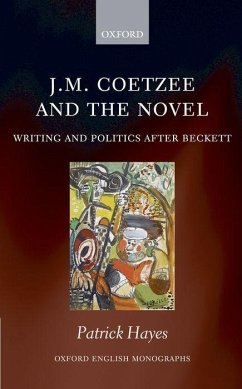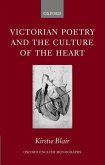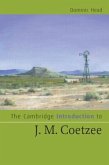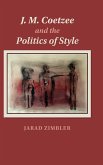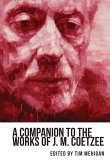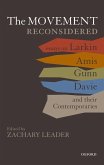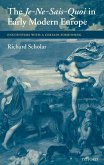'Anti-illusionism is, I suspect, only a marking of time, a phase of recuperation, in the history of the novel. The question is, what next?' (J.M. Coetzee)
Patrick Hayes argues that the significance of Coetzees fiction lies in the acuity with which it both explores and develops the tradition of the novelranging from Cervantes, Defoe, and Richardson to Dostoevsky, Kafka, and Beckettas part of a sustained attempt to rethink the relationship between writing and politics. For Coetzee, questions about the future of the novel are closely related to what it means to write after Beckett, and J. M. Coetzee and the Novel examines the ways in which
his fiction discerningly assimilates the techniques of literary modernism to engage with some of the most troubling aspects of late twentieth-century cultural and political life.
While Coetzee is rightly known as an intensely serious writer, Hayes shows that the true seriousness of his writing is intimately bound up with comedyor, to use the word Coetzee borrows from Joyce, the jocoserious. Opening up a range of new approaches to this major contemporary author, J. M. Coetzee and the Novel argues that it is only by paying especially close attention to the experience of reading Coetzees finely-nuanced prose that his distinctive impact on longstanding questions
about identity, community, and the nature of political modernity can be appreciated.
Hinweis: Dieser Artikel kann nur an eine deutsche Lieferadresse ausgeliefert werden.
Patrick Hayes argues that the significance of Coetzees fiction lies in the acuity with which it both explores and develops the tradition of the novelranging from Cervantes, Defoe, and Richardson to Dostoevsky, Kafka, and Beckettas part of a sustained attempt to rethink the relationship between writing and politics. For Coetzee, questions about the future of the novel are closely related to what it means to write after Beckett, and J. M. Coetzee and the Novel examines the ways in which
his fiction discerningly assimilates the techniques of literary modernism to engage with some of the most troubling aspects of late twentieth-century cultural and political life.
While Coetzee is rightly known as an intensely serious writer, Hayes shows that the true seriousness of his writing is intimately bound up with comedyor, to use the word Coetzee borrows from Joyce, the jocoserious. Opening up a range of new approaches to this major contemporary author, J. M. Coetzee and the Novel argues that it is only by paying especially close attention to the experience of reading Coetzees finely-nuanced prose that his distinctive impact on longstanding questions
about identity, community, and the nature of political modernity can be appreciated.
Hinweis: Dieser Artikel kann nur an eine deutsche Lieferadresse ausgeliefert werden.

